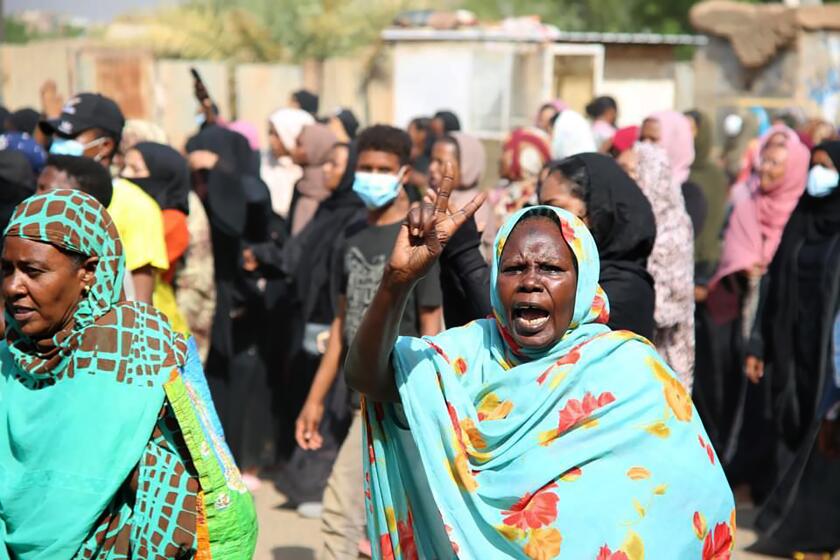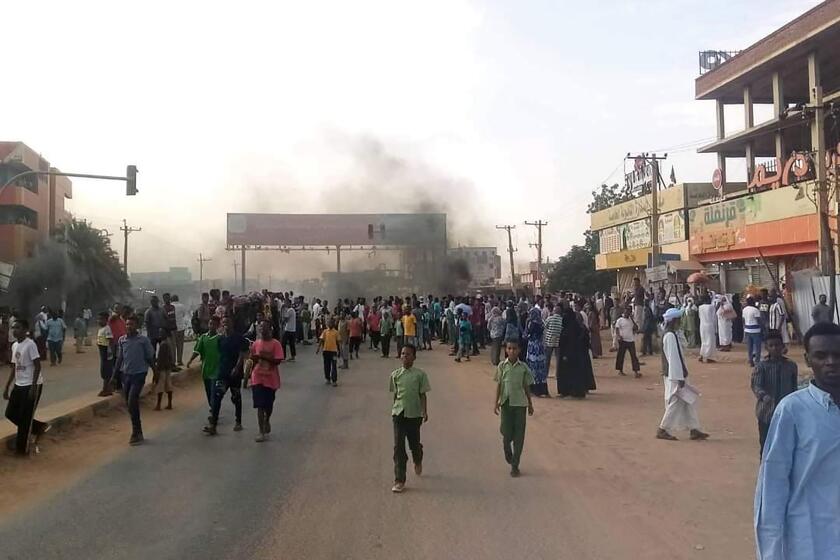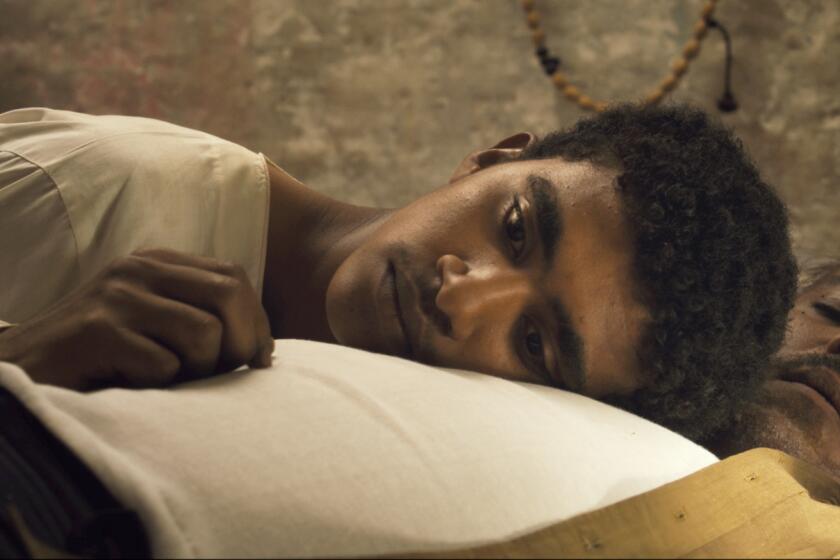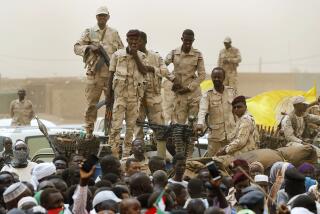Sudan’s new strongman fires ambassador to U.S. and other diplomats who criticized coup
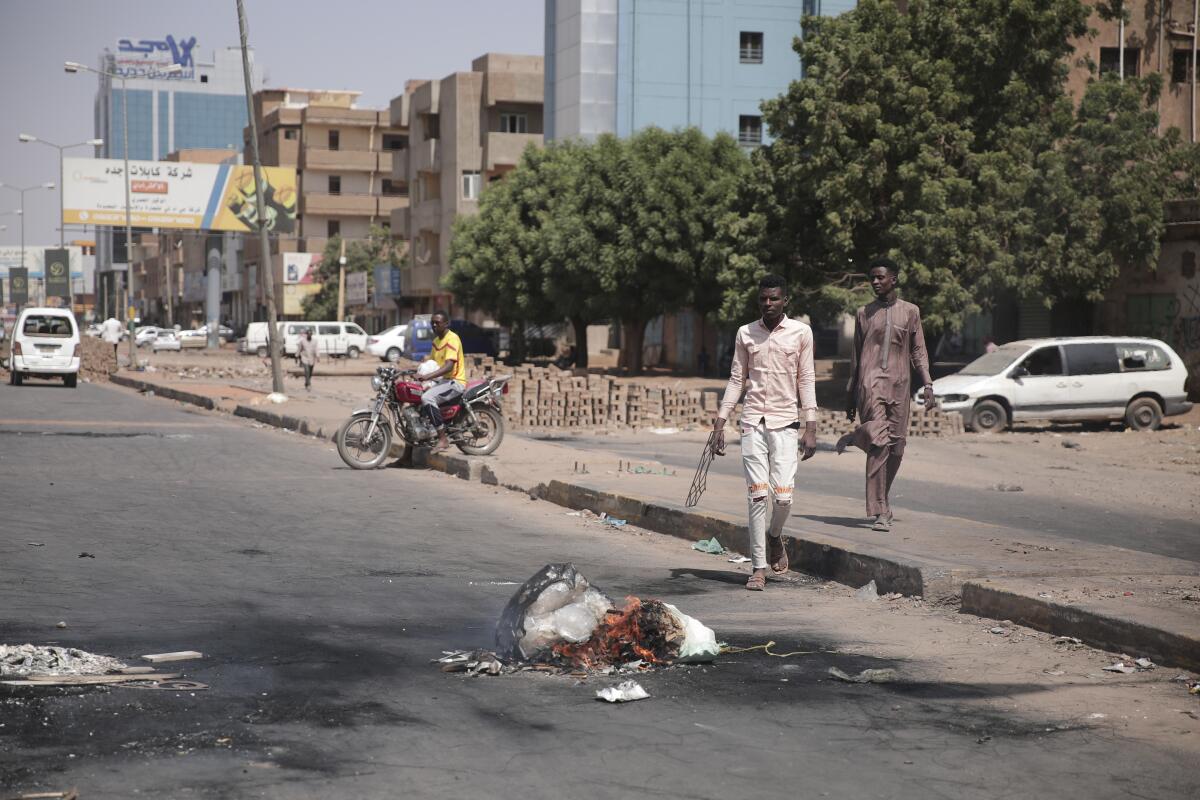
CAIRO — Sudan’s coup leader fired at least six ambassadors, including envoys to the U.S., the European Union and France, after they condemned the military’s takeover of the country, a military official said Thursday.
The diplomats pledged their support for the now-deposed government of Prime Minister Abdalla Hamdok.
Also fired by Gen. Abdel-Fattah Buran late Wednesday were the Sudanese ambassadors to Qatar, China and the United Nations mission in Geneva, according to the official, who spoke on condition of anonymity because he was not authorized to brief media.
State-run Sudan TV also reported the dismissals.
The ambassadors were fired two days after Burhan dissolved the transitional government and detained the prime minister, many government officials and political leaders in a coup condemned by the U.S. and the West. The military allowed Hamdok to return home Tuesday after international pressure for his release.
Burhan said the military forces were compelled to take over because of political factionalism that he claimed could lead to civil war. However, the coup also comes just weeks before Burhan would have had to hand over leadership of the Sovereign Council, the ultimate decision-making body in Sudan, to a civilian, a step that would reduce the military’s hold on the country. The council has military and civilian members. Hamdok’s government ran Sudan’s daily affairs.
The military takeover in Sudan threatens to wreck the country’s fragile transition to democracy after the ouster of longtime autocrat Omar Bashir.
The coup threatens to halt Sudan’s fitful transition to democracy, which began after the 2019 ouster of longtime ruler Omar Bashir and his Islamist government in a popular uprising.
The takeover came after weeks of mounting tensions between military and civilian leaders over the course and pace of that transition.
Ali bin Yahia, Sudan’s envoy in Geneva, was defiant after his dismissal.
“I will spare no efforts to reverse the situation, explain facts and resist the blackout imposed by coup officials,” he said in video comments posted online.
Sudanese security forces detain three prominent pro-democracy figures as internal and international pressure mounts on the new military government.
Nureldin Satti, the ambassador to the U.S., said Tuesday that he was working with other Sudanese diplomats in Brussels, Paris, Geneva and New York to “resist the military coup in support of the heroic struggle of the Sudanese people” to achieve the aims of the uprising against Bashir.
Activists have been circulating videos on social media showing mostly empty streets in Khartoum, the capital, with most stores except for groceries and bakeries closed Thursday. Protesters had called for a national strike to pressure the military to relinquish power.
Earlier this week, a group of more than 30 Sudanese diplomats in and outside Sudan condemned the military’s takeover in a joint statement, saying that the ambassadors in Belgium, Switzerland and France had pledged their continued allegiance to the Hamdok government.
The Ministry of Culture and Information, also still loyal to Hamdok, said in a Facebook post that the ambassador to South Africa was also part of this group.
Breaking News
Get breaking news, investigations, analysis and more signature journalism from the Los Angeles Times in your inbox.
You may occasionally receive promotional content from the Los Angeles Times.
In another development, Burhan fired Adlan Ibrahim, head of the country’s Civil Aviation Authority, according to the official. Adlan’s dismissal came after flights in and out of Khartoum’s international airport resumed Wednesday.
It was not immediately clear if Ibrahim’s dismissal was linked to the reopening of the airport, which remained open Thursday morning.
The aviation authority had initially said flights would be suspended until Saturday, the day of a planned mass protest against the coup. The military has also reopened some bridges that were closed earlier by protesters.
Protesters took to the streets of Khartoum and its twin city of Omdurman late Wednesday in continued demonstrations against the coup amid heavy security across the capital. By Thursday morning, security forces had cleared several makeshift stone barricades that protesters had set up in a few residential neighborhoods.
For the first time in its history, Sudan has a submission for the Academy Awards
No casualties were reported, but a young man died in a Khartoum hospital late Wednesday of wounds sustained in Monday’s protests, and another who had been in a coma for nearly two days after being shot in the head died early Thursday, according to activist Nazim Siraj.
That raised the number of protesters killed since Monday to eight.
Al least 170 people have been wounded since the military takeover, according to a statement issued by the Office for the Coordination of Humanitarian Affairs, or OCHA. Most of the cases, including moderate and severe ones, are lying in Khartoum hospitals, which are facing a shortage of supplies as movement in the capital remains restricted by roadblocks, OCHA said.
Hundreds of people marched Thursday in a funeral procession in Khartoum for one of the protesters.
Also on Thursday, the Friends of Sudan Group, which consists of several EU states as well as the U.S. and the U.N., issued a statement condemning the coup and calling for the immediate release of Sudanese officials who were unlawfully detained.
“The actions of the security forces deeply jeopardize Sudan’s hard-won political, economic and legal gains made over the past two years and put Sudan’s security, stability and reintegration into the international community at risk,” said the statement from the alliance, which was formed after Bashir’s ouster.
The statement urged the country’s armed forces to restore all transitional arrangements that were based on military-civilian partnership.
More to Read
Sign up for Essential California
The most important California stories and recommendations in your inbox every morning.
You may occasionally receive promotional content from the Los Angeles Times.
